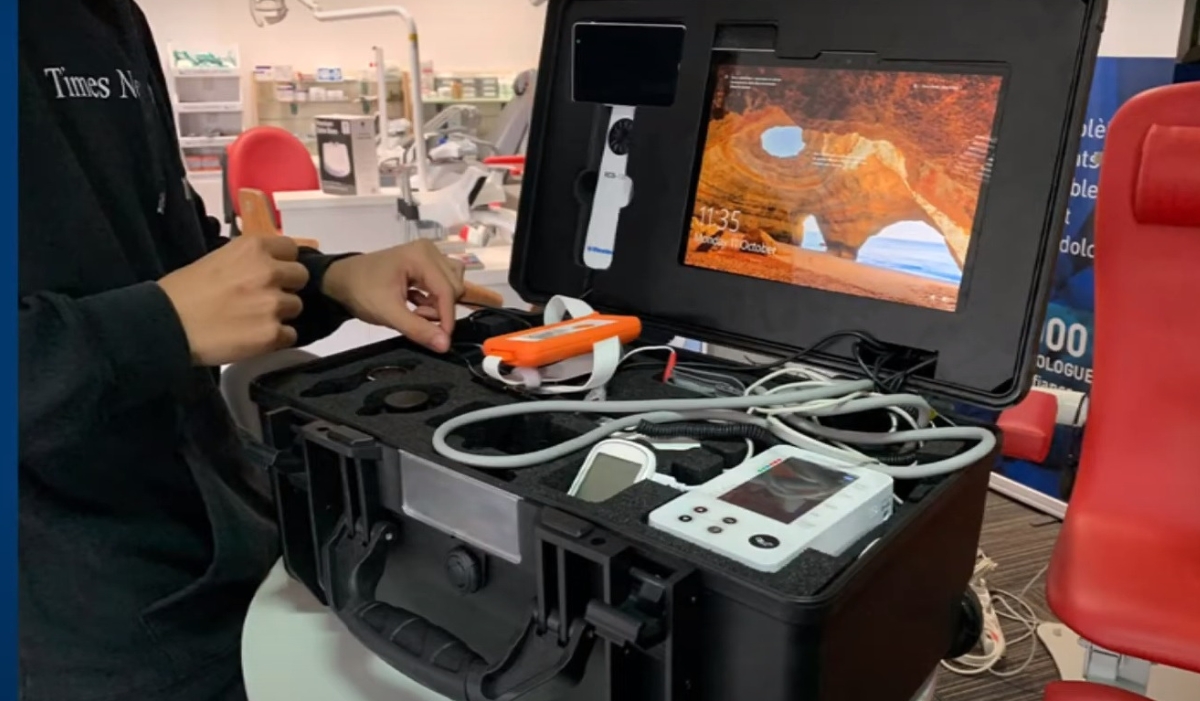Bioinformatics and biotechnology are transforming the health industry, with engineers at the forefront of innovation. In recent years, advancements in technology and materials have enabled engineers to design and develop cutting-edge medical devices that are improving patient outcomes and transforming society.
Engineers have been key players in this revolution, using their expertise in materials science and engineering to develop medical technologies that are saving lives.
Engineers Leveraging Biotech to Change the Healthcare Industry
One of the most significant technological advancements that have enabled these developments is 3D printing. Engineers can use 3D printers to create complex and patient-specific medical devices, not only for treatment and therapy but to support diagnostics as well. These devices can be tailored to a specific patient’s anatomy and pathology, improving the efficacy of treatment while minimizing the risks associated with surgery. Moreover, biomedical engineers are developing better wearable medical devices that can monitor a patient’s health in real-time. These devices can track vital signs, detect early signs of disease, and alert medical professionals of potential health risks before they become life-threatening.
As for Artificial intelligence, engineers are using it in biotech and bioinformatics in a variety of ways to improve research and development processes and advance scientific understanding. From drug discovery and analyzing massive databases of chemical compounds and predicting which compounds are most likely to have a therapeutic effect on a particular disease, to image analysis where AI algorithms are being used to analyze medical images, such as X-rays and MRI scans, to identify patterns and anomalies that may be associated with the disease. This is improving the accuracy and speed of disease diagnosis and treatment planning, and bioprocessing, to optimize bioprocessing workflows, such as fermentation and cell culture, to improve yields and reduce costs. This is enabling the development of new biotech products and therapies that are more affordable and scalable.
The impact of these developments on patient outcomes and society, in general, cannot be overstated. Medical devices have been instrumental in improving patient care, enabling earlier diagnosis, and providing more targeted and effective therapies. Wearable devices are making it possible for patients to take an active role in managing their health, reducing the burden on healthcare providers and improving the quality of care.
Endless Opportunities for Young Engineers
Young engineers may be wondering what opportunities are available to them in the rapidly growing fields of bioinformatics and biotechnology. These fields are at the forefront of modern scientific research and offer a wide range of exciting career prospects.
Bioinformatics is the field of science that uses computational methods to analyze and understand biological data. This can involve everything from analyzing genomic data to developing algorithms to better understand complex biological systems. Biotechnology, on the other hand, involves using living organisms to develop new products or processes that benefit humanity.
In fact, there are a number of different career paths that engineers can take in these fields, depending on their interests and skillset. For instance, they might work as a bioinformatics analyst, using their expertise in computer science to develop tools and algorithms to analyze biological data.
More job opportunities and roles include, but are not limited to:
- Telemedicine and IoT Engineer
- Health Information System
- Biostatistician Engineer
- Medical Data Project Manager,
- R&D Engineer
- Quality and Regulations Engineer
- Life Sciences Data Scientist
Where to Start? With an Engineer’s Degree with a Major in Health Engineering & Biotechnology!
This major uses teaching that combines life and human sciences, artificial intelligence and technologies, medical regulations, and biotechnologies. Engineers taking this major are therefore positioned at the intersection between people, technology, and medical professionals, and are at the heart of the digital transformation of the medical sector and biotechnologies.
The field of medical technology is a rapidly growing and highly interdisciplinary area of study, requiring expertise from a range of different fields.
The master’s degree is designed to provide engineers with the skills and knowledge they need to thrive in this environment, by combining training in traditional engineering disciplines with specialized courses in biology, medical science, and other relevant areas. This unique training prepares graduates to work effectively in the multidisciplinary teams that are increasingly common in medical technology and to contribute to the development of new technologies and treatments that have the potential to improve patient outcomes and transform healthcare.
Interested in pursuing a career at the intersection of engineering and medicine? You’ve reached your destination!







